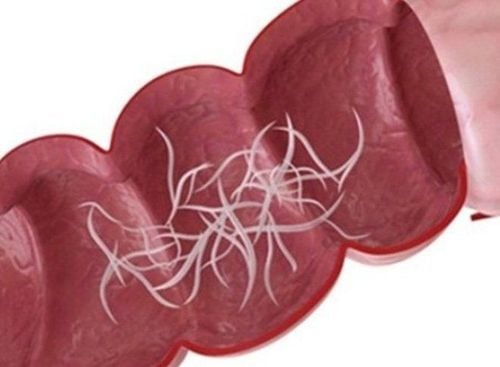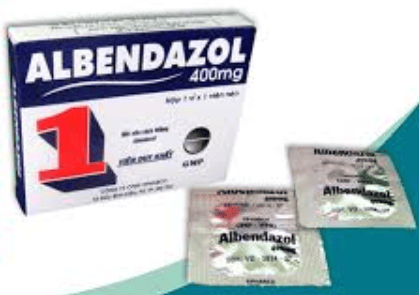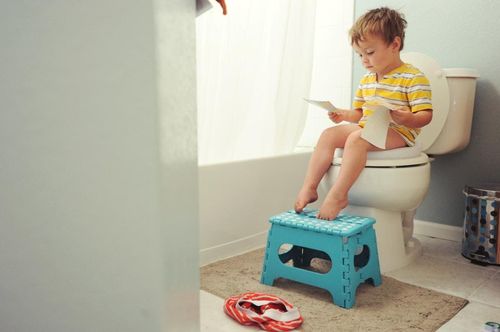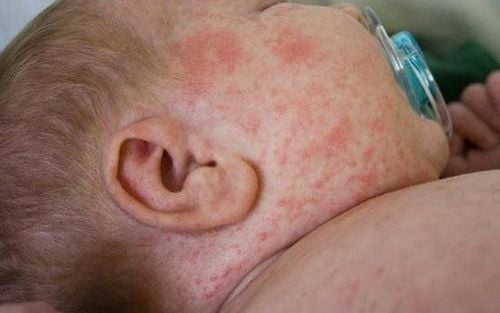Children are among the most susceptible to pinworm infections. Once they invade the body, these parasites can negatively impact a child’s health. Therefore, understanding how to recognize and prevent pinworm infections is essential. The following article provides comprehensive information on this type of worm.
1. What are pinworms?
Pinworms are small, white worms that live in the intestines. They resemble pieces of dental floss, about 1/4 inch long, and can often be found around the anus or in the stool. Pinworm infections are most common in school-aged children, but individuals of any age, including infants, can be affected. This is especially true for children attending daycare or living with siblings who are infected.
The presence of pinworms is not necessarily a sign of poor hygiene and is rarely dangerous. Moreover, they are relatively easy to eliminate. However, severe pinworm infestations may cause weight loss, urinary tract infections, or abdominal infections in girls. Although rare, serious complications from pinworm infections can occur.

2. How to Identify Pinworm Infections in Children
Children infected with pinworms often scratch or complain of itching around the anus, especially at night. Infants may have disrupted sleep and cry due to itching. Other symptoms include skin irritation around the anus, vaginal itching in girls, nausea, or vomiting.
To confirm an infection, you can use a flashlight to inspect the anus or diapers at night or early in the morning, as pinworms are most active and lay eggs during this time. You can also press a piece of transparent tape against the child’s anus to collect eggs, which can then be tested by a doctor.
If no worms or eggs are found, anal itching could be caused by other factors, such as over-cleansing the area with soap. Red, tender skin around the anus may result from diaper rash, diarrhea, or bacterial infections. Additionally, foul-smelling pus or discharge is a sign of infection.
Trắc nghiệm: Nhận biết sớm dấu hiệu chậm phát triển thể chất và trí tuệ ở trẻ
Nếu 6 tuổi không biết đếm số, 7 tuổi vẫn chưa phân biệt được giữa thực tế và tưởng tượng thì có thể bé chậm phát triển thể chất và trí tuệ hơn so với bạn bè cùng lứa. Bạn đã nhận biết được các dấu hiệu bất thường sớm này chưa? Cùng làm nhanh bài trắc nghiệm sau để trang bị thêm kiến thức cho mình nhé!
The following content is prepared under supervision of Thạc sĩ, Bác sĩ y khoa, Ma Văn Thấm , Nhi , Phòng khám Đa khoa Vinmec Dương Đông(Phú Quốc)
3. How Do Children Contract Pinworms?
Pinworm eggs can survive on surfaces for up to two weeks. Children may come into contact with the eggs by touching contaminated objects, such as toys, and then putting their fingers in their mouths. They can also ingest eggs from contaminated food.
Once inside the body, the eggs travel to the large intestine and hatch. Female pinworms then migrate out of the intestines to lay eggs around the anus. This movement causes intense itching, which can disrupt the child's sleep. Scratching transfers the eggs under the fingernails, perpetuating the cycle when the child puts their fingers in their mouth.

4. How to Treat Pinworm Infections
Mild pinworm infections may resolve without treatment. However, even moderate infestations can cause significant discomfort and disrupted sleep. Severe infections may lead to complications such as secondary infections.
Doctors may recommend over-the-counter or prescription medications such as mebendazole, albendazole, or pyrantel to eliminate pinworms. Family members are often advised to undergo treatment simultaneously, as pinworms spread easily.
If you are uncertain about whether you are dealing with pinworms, consult a doctor before using over-the-counter medication. For children under two years old or for pregnant and breastfeeding women, seek medical advice regarding safe treatment options.
Symptoms of pinworm infection typically subside within a week of treatment. However, since medications only kill the worms and not the eggs, doctors usually recommend repeating the treatment two weeks later to eliminate any newly hatched worms. After treatment, pinworms are expelled in the stool.

5. How to Prevent Pinworm Infections
To reduce the risk of pinworm infections, follow these preventive measures:
- Clean the child’s nails with a brush and keep them trimmed to avoid trapping eggs.
- Bathe the child daily, preferably in the morning, to remove eggs that may have been deposited overnight. Avoid shared baths if pinworm infection is suspected.
- Change the child’s underwear daily.
- Open curtains during the day to allow sunlight into bedrooms, as pinworm eggs are sensitive to sunlight.
- Discourage nail-biting and thumb-sucking habits in children.
- Wash hands thoroughly before preparing food, after using the bathroom, and after changing diapers.
- Wash the child’s hands or assist them with hand washing before meals and after toilet use.
- Wash bed linens frequently.
- If someone in the household is undergoing pinworm treatment, wash all clothes and bedding in hot water to kill the worms and their eggs. Clean the toilet daily to prevent further spread.
Children between the ages of 6 months and 3 years are particularly vulnerable to respiratory infections, skin conditions, and gastrointestinal infections. Parents must pay close attention to their care and provide adequate nutrition.
Reference source: babycenter.com
| Sign up for a nutrition consultation for your child at: https://i.vinmec.com/dangkytuvandinhduong |
|---|














